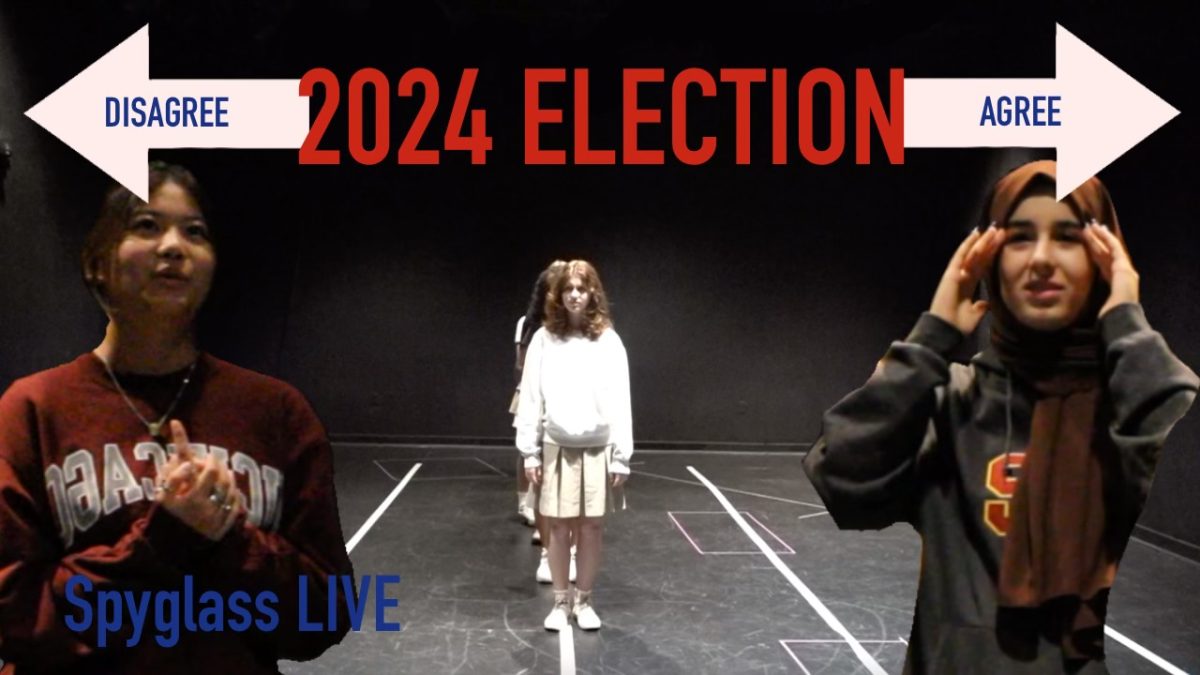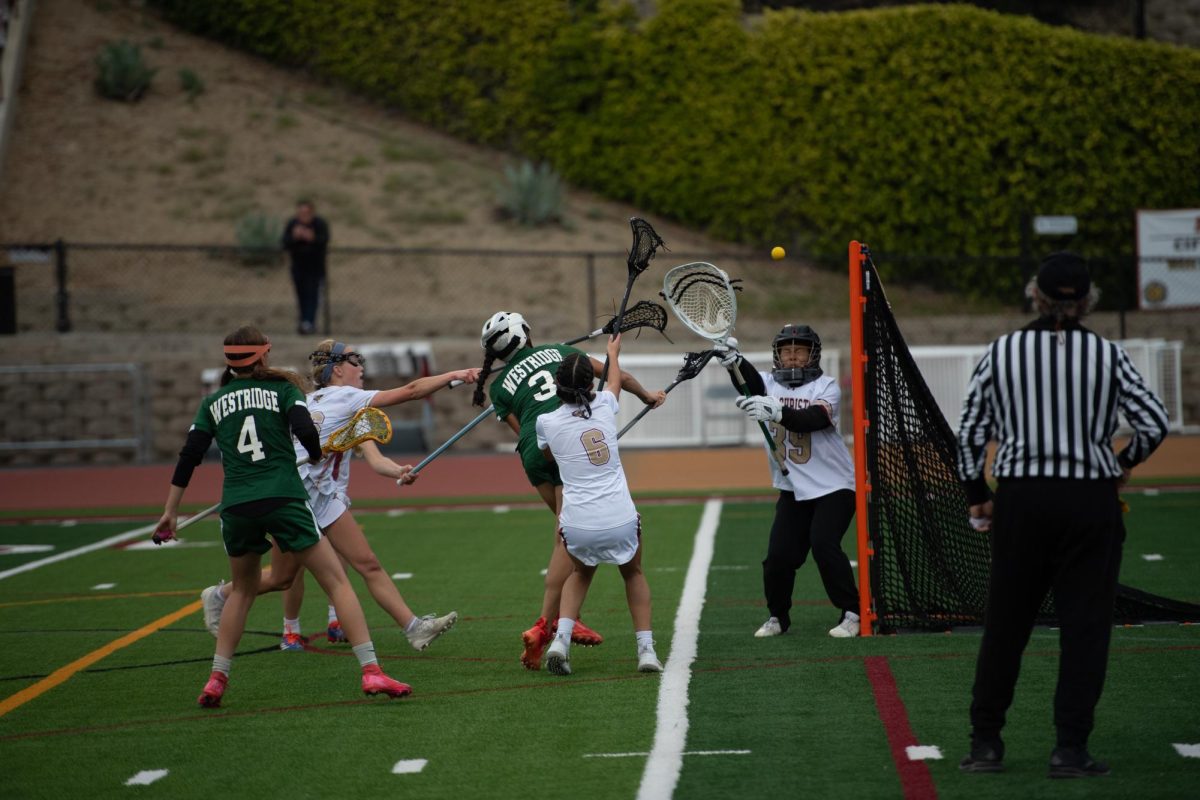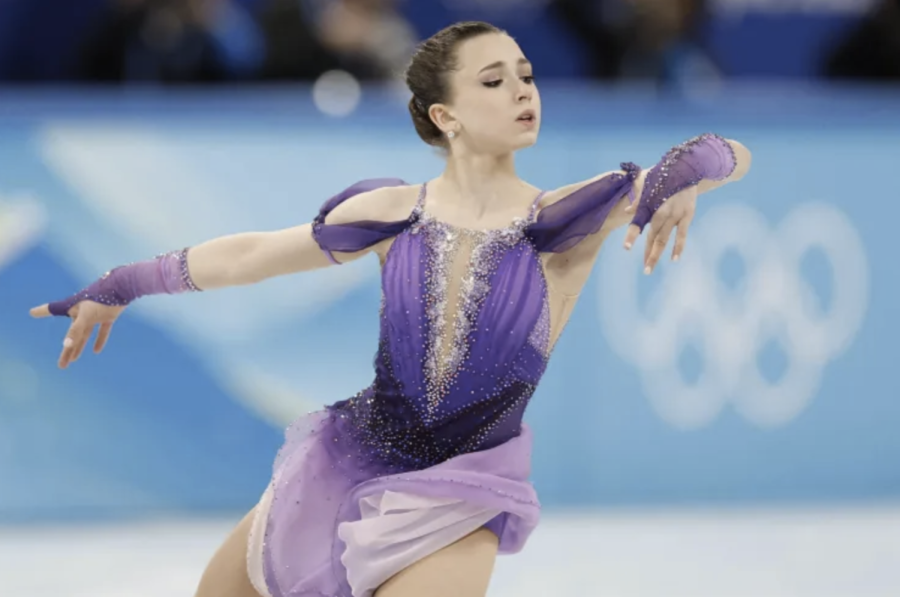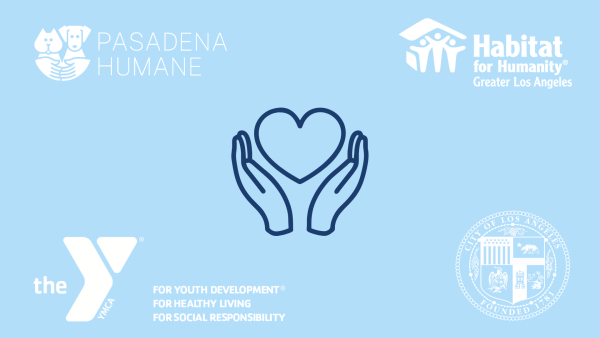Olympic Skater Doping Scandal Questions if Minors Should Compete in the Olympics
Kamila Valieva during her short program at Beijing 2022.
At 15, Kamila Valieva, a Russian figure skater, made history at the 2022 Beijing Olympics when she became the first woman to land a quad jump or four revolutions in the air at the Olympics. However, her fame was short-lived as the spotlight quickly shifted away from her talent and instead to the doping scandal that followed.
Following Valieva’s historic performance, the Olympic Committee announced that she had failed a drug test on December 25, 2021, several weeks before she was scheduled to compete. Her tests showed three prominent substances, two of which are allowed by the International Olympic Committee (IOC), and one, Trimetazidine, which is banned. “[Trimetazidine seemed] to be aimed at increasing endurance, reducing fatigue, and promoting greater efficiency in using oxygen,” said Travis Tygart, the chief executive of the United States Anti-Doping Agency in an interview with the New York Times. Russian officials say that the positive test result stemmed from contamination from Valieva’s grandfather’s medication. However, no further information has been given to support the claim. The Russian Anti-Doping Agency (RUSADA) suspended Valieva for one day following the publication of her test results. However, the Court of Arbitration of Sport (CAS), an institution dedicated to resolving disputes regarding sports, canceled the suspension the next day, explaining that Valieva “was a minor and they didn’t want to have any irreparable harm.”
The Olympic Committee had previously stated that if Valieva placed in the top three, they would postpone the medal ceremony until more information about her doping controversy came out. However, she had a shaky performance in the free skate, falling multiple times, and ultimately placed fourth overall.
As Valieva stepped off the ice after her shaky free skate, Valieva’s coach, Eteri Tutberidze, could be seen reprimanding Valieva, asking her, “Why did you stop fighting?” In an interview with the International Olympic Committee (IOC) conducted by CBS News, the IOC’s President, Thomas Bach, said he was “very, very disturbed” by what he witnessed. It was clear to him, he said, that Valieva was under “immense pressure.” “When I saw how she was received by [her coach], with such coldness, it was chilling to see,” Bach continued. “Rather than giving her confidence, rather than to try to help her, you could feel this chilling atmosphere.”
Some have suggested that Valieva’s coach was the one who pressured her into taking Trimetazidine. In a Vox news article titled “Kamila Valieva failed her drug test. Blame her coaches,” the author delves into several of Tutberidze’s previous questionable practices. “Kamila Valieva is a minor,” he wrote. “The adults in her life should be held responsible.”
Tutberidze previously led many athletes to the Olympics such as 2014 Sochi Gold Medalist Julia Lipnitskaia and 2018 Pyeongchang Gold Medalist Alina Zagitova, both at only 15 years old. This year, her student Anna Shcherbakova won gold, and Alexandra Trusva won silver. However, none of her athletes have had long careers. After Lipnitskaisa’s sensational performance at Sochi, she stepped away from the competitive scene, retiring when she was only 19. Similarly, Zagitova stepped out of the competition at age 17.
Questionable practices are especially prevalent in Russia, a country that was caught switching out urine samples in a doping scheme at the 2014 Sochi Games. Other questionable methods include the encouragement of disordered eating habits. Figure skating is a sport where leaner skaters will have a natural advantage due to the physics of the sport. Puberty, a time where the body naturally puts on more weight and height, is seen as the enemy. Weight and height shift the body’s center of balance, making once achievable jumps harder. Coaches will oftentimes impose strict diets among their athletes to maintain a physical advantage. In a 2017 interview with the Russian press, Lipnitskaia revealed that she had been suffering from anorexia “not just for one year, or two, or three” years. She also admitted that Tutberidze and her team would encourage her to take “powdered nutrients” in place of a proper meal to limit weight gain. Zagitova shared in an interview with Sport Express her coach’s plan to deal with the weight gain that comes with puberty. “You just need to shut your mouth and don’t eat! I eat, but in small quantities,” Zagitova said. Tutberidze has previously stated that she trains her students for 12 hours a day in order to produce optimal results.
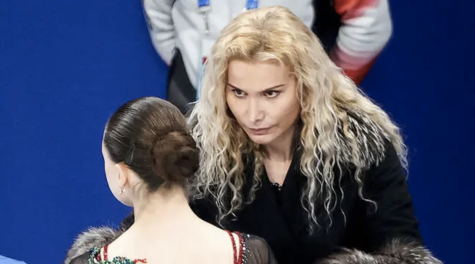
In an article for the New York Times, Juliet Macur asks, “Would raising the minimum competition age save young athletes from abuse and humiliation?” Using Valieva’s case as an example, the article makes it clear that some people have begun targeting Valieva as an individual rather than the institutions that allowed her to compete.
Raising the minimum age would eliminate the technical edge that coaches like Tutberidze use over other competitors, meaning many of her young athletes would not be able to bring back awards. “If the tradeoff is saving young minds and bodies, it’s a no-brainer,” Helene Elliot, an author sports columnist for The LA Times, stated.
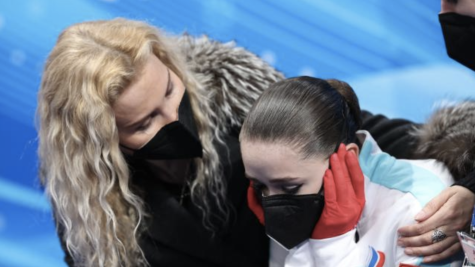
Although many worldwide are advocating for the minimum age of competition at the Olympics to be raised, Mark Adams, Director of Communications at the International Olympic Committee opposes this sentiment. “I think what would be disappointing is if we did not allow the opportunity for these athletes to grasp their dreams,” he said.
The International Skating Union (ISU) is expected to consider the change in June.

















![Dr. Zanita Kelly, Director of Lower and Middle School, pictured above, and the rest of Westridge Administration were instrumental to providing Westridge faculty and staff the support they needed after the Eaton fire. "[Teachers] are part of the community," said Dr. Kelly. "Just like our families and students."](https://westridgespyglass.org/wp-content/uploads/2025/03/dr.-kellyyy-1-e1748143600809.png)






















